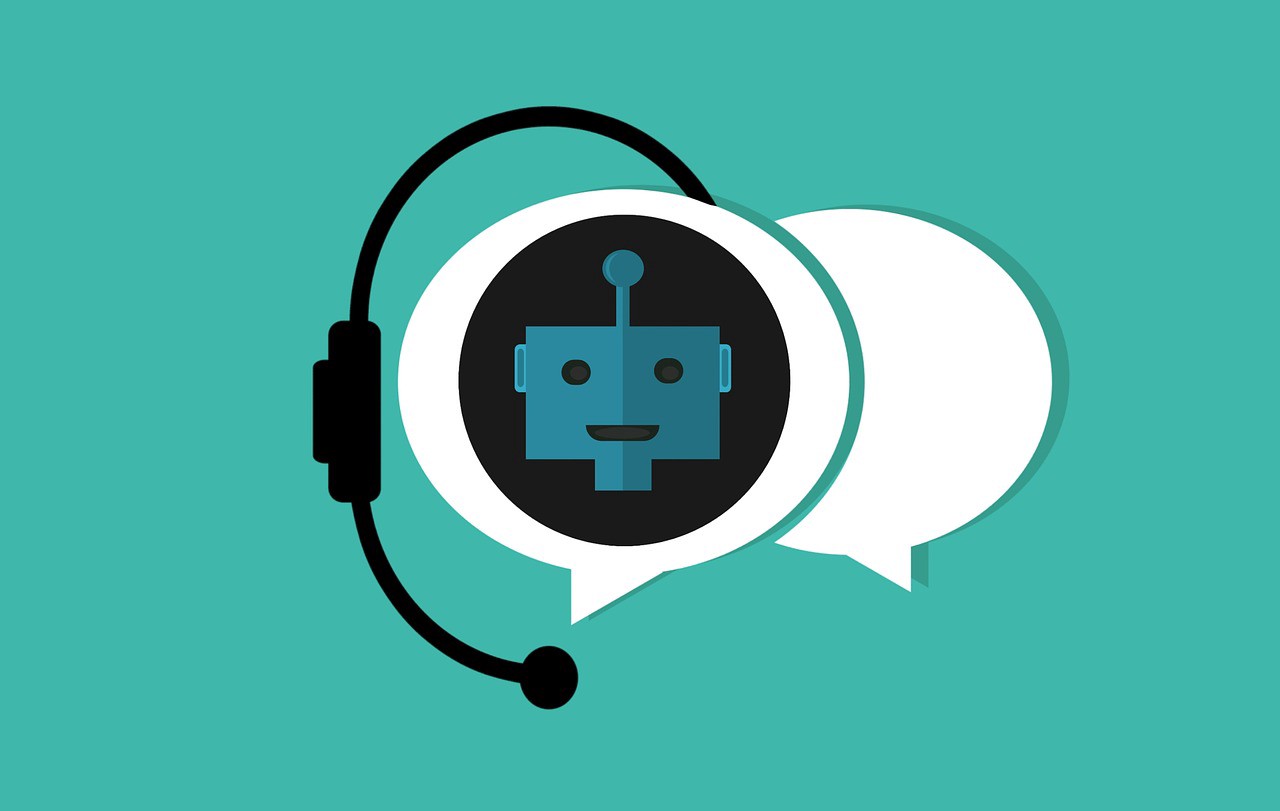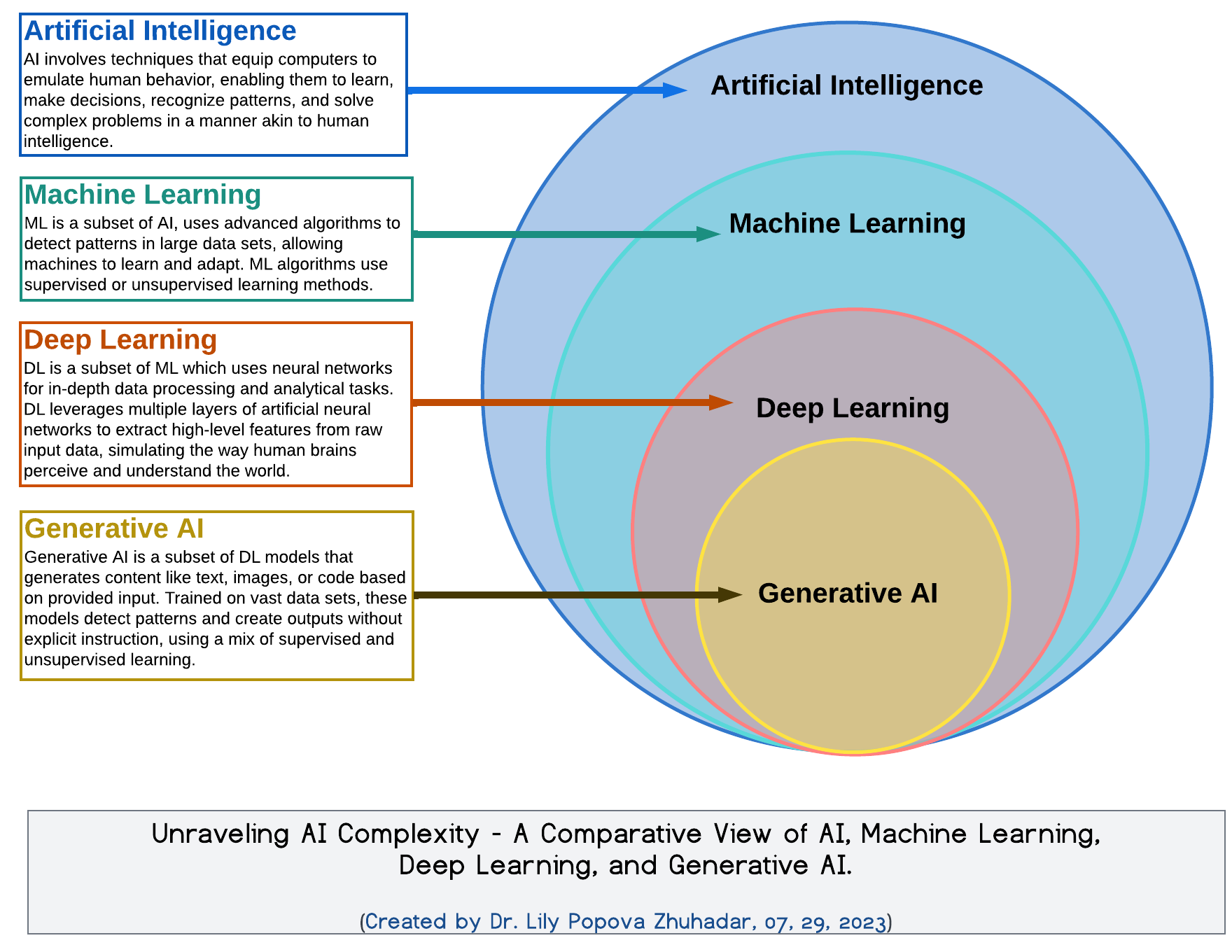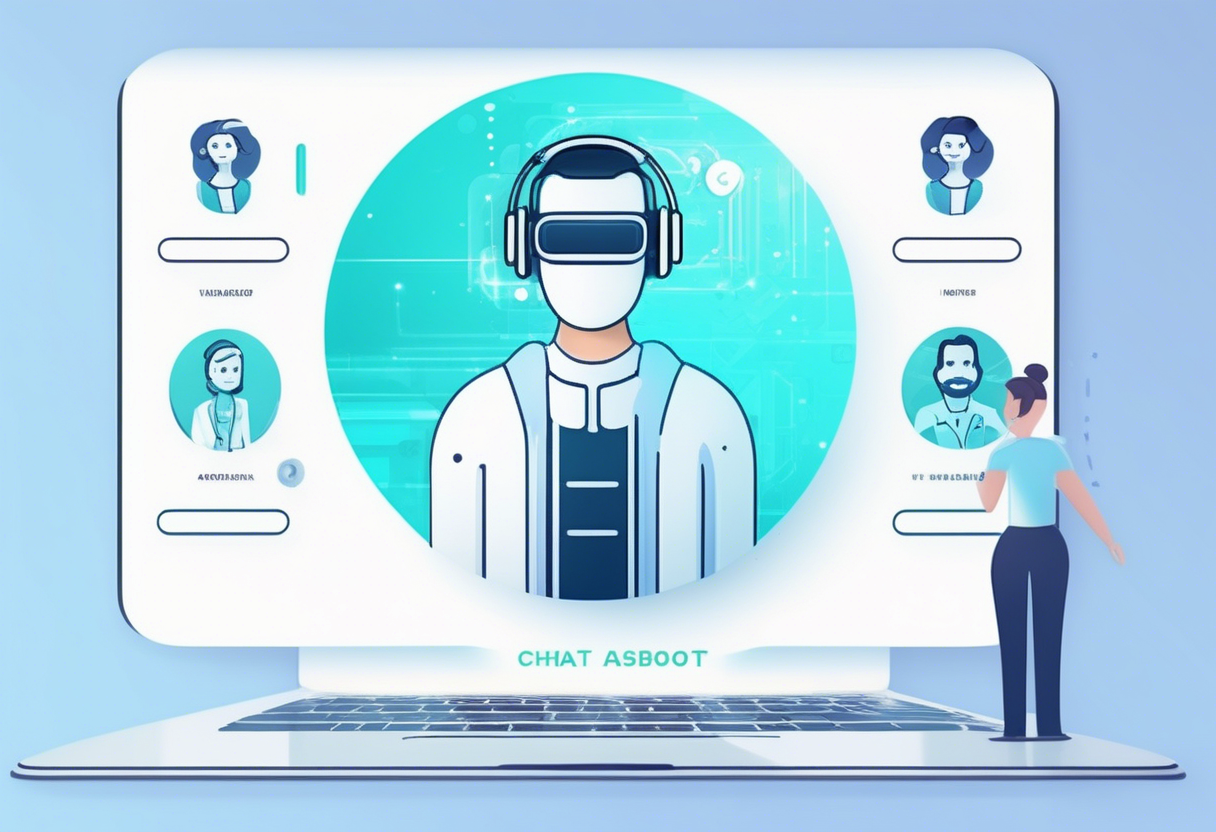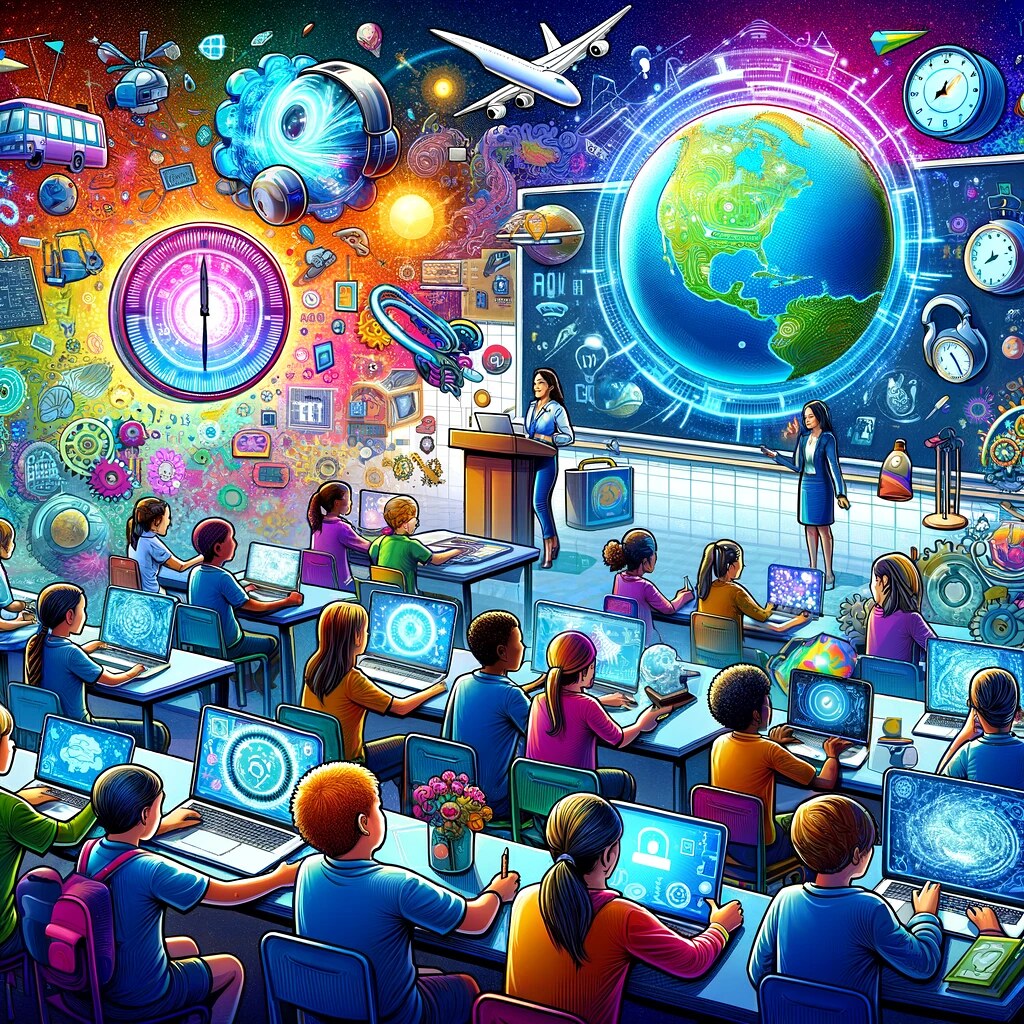
In today's fast-paced world of corporate training, a big question is: Can AI really close the learning gap? Companies are racing to keep up as technology speeds ahead, and using AI in training isn't just a passing fad—it's changing the game. Did you know that 75% of executives think AI will shake up how they do business in the next three years? This shows how crucial and impactful AI-enabled learning could be. Picture a setup where learning is tailored just for you, with instant feedback and content that adapts as you learn. It could change how employees pick up new skills and knowledge. Here, we'll look at the many perks of AI-driven tools, consider the strategic angles, and talk about the ethical and privacy issues that come with this tech shift. Let's see if AI-enabled learning is the key to boosting growth and efficiency in corporate training.
Summary: This article explores the potential of AI-enabled learning to enhance corporate training by examining its benefits, tools, strategic implications, and ethical considerations. It also addresses common questions regarding the integration of AI in corporate training environments.
Can AI-Enabled Learning Truly Bridge the Gap in Corporate Training?
Understanding AI-Enabled Learning
Definition and Overview of AI-Enabled Learning
AI-enabled learning in corporate training leverages artificial intelligence to create a more personalized, automated, and efficient learning experience. It tailors the training process to match each individual's learning style, progress, preferences, and areas needing improvement. This approach enhances learning effectiveness and engagement.
AI facilitates continuous learning by providing instant access to resources and information as needed. It also automates tasks such as scheduling and tracking progress, simplifying the roles of trainers and HR professionals. For instance, an AI-powered learning management system (LMS) can analyze an employee’s training history and skills to recommend courses and dynamically adjust learning paths.
Core Technologies in AI-Enabled Learning
AI-enabled learning employs several key technologies to enhance its capabilities:
- Chatbots and Virtual Coaches: Offer immediate assistance and support, keeping learners engaged and aiding retention.

-
AI-driven Analytics for Training Insights: Analyze learner data to provide insights for refining training programs.
-
Natural Language Processing and Machine Learning in Learning Content: Enable the creation of content that adapts to individual needs.
-
Predictive Analytics for Skill Development: Anticipate future skill requirements, helping organizations prepare employees for upcoming challenges.
-
Virtual Reality (VR) and Augmented Reality (AR) in AI Learning: Deliver realistic training experiences. An AI-powered platform can assess employee progress and skill gaps, offering VR simulations for practical, personalized skill-building.
Companies adopting AI learning solutions report a 20% increase in employee engagement and a 15% rise in knowledge retention. AI in corporate training enhances learning efficiency by 57%, with the global corporate e-learning market projected to reach $44.6 billion by 2028. Major companies like Schneider Electric and Amazon utilize AI-driven training to upskill their workforce, resulting in improved productivity and business outcomes.

These platforms employ adaptive systems that continuously evaluate learner performance, adjusting content and difficulty to suit each individual. AI-enhanced VR and AR simulations transform traditional training programs into dynamic, learner-centric experiences.
AI-enabled learning in corporate training is an intelligent approach to enhancing personalization, engagement, and scalability. By utilizing AI-driven analytics and predictive analytics, organizations can fine-tune training and prepare employees for future challenges.
Advantages of AI-Enabled Learning in Corporate Training
Personalized Learning Paths with AI
AI in corporate training excels at personalizing learning experiences. By leveraging advanced algorithms, AI assesses factors such as past performance, personal preferences, and areas for improvement. It then crafts a unique learning path tailored to each individual. This ensures a balanced mix of content that is both beneficial and challenging.
AI continuously updates training materials to meet current needs, providing targeted assistance for improvement. Additionally, it aggregates content from various sources to align with personal interests, enhancing engagement and efficacy in learning. AI platforms, like the ones here, design learning paths that align content with specific learning requirements.

Boosting Efficiency and Reducing Costs with AI
AI significantly enhances the efficiency and cost-effectiveness of corporate training. By automating the distribution, assessment, and feedback processes, it reduces the reliance on human intervention, saving both time and resources. AI also optimizes administrative tasks, ensuring efficient resource utilization and expedited training delivery, which further cuts costs.
The acceleration of course development through AI results in substantial time and financial savings. Some organizations have reported a reduction in training costs by 40% and a decrease in training time by 50%. For instance, AI tools like IBM's facilitate the creation and delivery of training content, allowing trainers to concentrate on content quality.
Enhancing Scalability and Accessibility with AI
AI-powered learning platforms offer scalability and accessibility, delivering consistent training across global teams. They overcome language barriers and provide continuous learning opportunities, regardless of location. AI chatbots and virtual assistants offer instant support, enhancing engagement and accessibility.
Moreover, AI enriches VR and AR simulations, creating immersive training experiences accessible from anywhere. This ensures uniform quality training, fostering a skilled workforce worldwide. Platforms like Skillsoft Percipio provide these capabilities, ensuring consistent skill development on a global scale.
AI in Continuous Learning and Skill Gap Analysis
AI plays a crucial role in facilitating continuous learning and identifying skill gaps. By analyzing learner data, AI detects patterns, identifies gaps, and evaluates training effectiveness, enabling ongoing improvements. It aids in reskilling by identifying skill deficiencies and developing personalized learning strategies.
AI analytics offer managers clear insights into employee performance, supporting informed HR decisions. Companies employ AI assessments to identify emerging skill needs, ensuring workforce adaptability. This proactive approach addresses skill challenges before they impact productivity, fostering a culture of learning and agility. Platforms like Degreed utilize AI to track learning progress and recommend personalized development plans, keeping employees equipped with the latest skills.

AI-Driven Tools and Technologies in Corporate Training
AI-Powered Content Creation for Efficient Learning
AI is revolutionizing how companies create and deliver training content. With AI-generated training videos, businesses can produce realistic videos featuring digital trainers or executives. This innovation reduces the need for repeated in-person sessions, enhancing scalability and efficiency.

For instance, Buffalo Grill utilizes AI to select and tailor training topics such as sales and customer relations, streamlining content creation. This approach allows learning and development (L&D) leaders to concentrate on more specialized training. Additionally, AI tools expedite course production by swiftly generating standard content like regulatory training. These tools customize and fine-tune content to meet specific company needs, significantly boosting both customization and efficiency.
AI Chatbots and Virtual Assistants in Corporate Training
AI-powered chatbots and virtual assistants are becoming essential in corporate training. They provide real-time assistance and coaching that resonates with employees. These AI tutors adapt to individual learning styles, answering questions and offering personalized explanations akin to a personal trainer. Increasingly, they are employed in onboarding, skills training, and compliance programs, delivering 24/7 support that fits any schedule.

For example, AI virtual mentors in workplace learning apps offer on-demand coaching and problem-solving assistance, enabling employees to acquire new skills more rapidly and effectively.
AI Integration with VR/AR for Immersive Learning Experiences
The integration of AI with virtual reality (VR) and augmented reality (AR) is transforming learning, particularly in technical and hands-on training. AI-powered VR and AR simulations provide interactive learning environments that adjust according to user performance. This engagement offers learners a safe, realistic space to practice.
Companies are leveraging these AI-driven VR simulations to train employees on complex machinery, allowing practice in environments that align with their skill levels. These immersive technologies deliver learning experiences that traditional methods simply cannot match.
Corporate learning is evolving rapidly, with AI tools playing a crucial role in personalizing and enhancing training experiences. As corporate learning expenditures are anticipated to rise, AI's impact on productivity and skill development is evident, paving the way for numerous opportunities in a skills-focused economy.
Explore more with these resources:
- AI-generated training videos
- AI-assisted content creation
- AI-powered chatbots
- AI eLearning tutors
- AI-enhanced VR/AR simulations
Strategic Implications of AI-Enabled Learning
Enhancing Human-AI Collaboration in Learning
AI acts as a brainstorming buddy, accelerating idea generation and identifying biases or blind spots in decision-making processes. In educational settings, AI tools automate tasks such as grading and attendance, allowing teachers to devote more time to personalized student interactions. This hands-on approach ensures that students receive the tailored support they need.
Understanding AI is crucial for effective collaboration between technical and non-technical teams, enhancing communication and adaptability. Teachers can leverage AI to develop customized learning paths, reducing administrative burdens and fostering collaboration between educators and AI. AI in education not only supports teachers but also transforms student learning by personalizing content and pacing to suit individual needs.

Leveraging AI for Data-Driven Decision Making
AI excels at identifying patterns in large datasets, enabling more informed decision-making, need prediction, and problem-solving. With AI-powered scenario analysis and simulations, strategists can evaluate potential outcomes of market shifts or competitor actions before making decisions.
In the educational sphere, AI facilitates the development of data-driven curriculums and personalized learning experiences, aligning teaching methods with student needs and industry trends. Tools like Tableau and Google Data Studio empower educators to visualize and interpret data, revealing student engagement levels and areas of difficulty. This data-driven approach empowers schools to implement strategic changes that enhance learning outcomes and operational efficiency, preparing students for future job demands. AI literacy is essential for strategic transformation, fostering problem-solving, innovation, and effective human-AI collaboration.

Aligning AI-Enabled Training with Business Goals
Cultivating AI expertise among employees is vital for fostering innovation and maintaining a competitive advantage. Integrating AI into education involves aligning course design, teacher training, and ethical considerations with broader workforce and societal needs. AI tools clarify abstract concepts and enhance critical thinking skills that align with both business and educational objectives.
Platforms like LinkedIn Learning and Degreed provide AI-driven recommendations that align personal development with organizational goals. AI can evaluate the effectiveness of training programs by measuring performance improvements and ROI, ensuring that learning investments are closely tied to business success. This alignment enhances employee skills and supports growth and competitiveness in a dynamic market. AI-enabled education strategies ensure that graduates are prepared for the evolving job market, equipping them for an AI-driven future.
Ethical and Privacy Considerations in AI-Enabled Learning
Ensuring Data Privacy and Security in AI-Enabled Learning
When it comes to AI in education, keeping student information safe is crucial. Schools need to focus on data privacy and security to prevent unauthorized access and data breaches.
To achieve this, educational institutions should:
- Implement robust data protection measures.
- Comply with regulations such as COPPA and FERPA to ensure personal information remains secure within AI systems.
Transparency is also vital. Clearly communicating how data is used and how AI makes decisions builds trust and ensures ethical handling of student data.
Consider the approach of Arizona school districts: they have a clearance process for AI tech vendors to ensure adherence to federal privacy laws. Such proactive steps help mitigate risks related to data misuse and privacy issues in AI-powered learning tools.

Tackling Bias and Ensuring Fairness in AI-Enabled Learning Models
Bias in AI can arise from non-diverse training data or data that reflects societal inequalities, potentially leading to unfair grading or admissions.
To combat this, schools should:
- Use diverse data sets.
- Test regularly for fairness.
- Conduct ongoing evaluations.
Ethical AI frameworks emphasize nondiscrimination, fairness, and justice, ensuring that all students receive equitable treatment and minimizing harm to underrepresented groups.
Transparency and accountability are key. Clearly explaining how AI decisions are made helps address bias. For instance, before implementing an AI admissions tool, a college might test for bias and adjust the algorithm to prevent disadvantaging minority applicants.
By promoting AI literacy and ethical awareness, educators can foster more inclusive and fair learning environments.
FAQs on AI-Enabled Learning in Corporate Training
AI-Enhanced Efficiency in Corporate Training
AI enhances corporate training efficiency primarily through automated content curation. By sifting through vast amounts of data, AI identifies the most suitable materials for each learner, aligning with their preferences. This automation saves time and reduces the manual effort typically required for content selection.
Moreover, AI accelerates the creation and delivery of training by:
- Drafting outlines
- Simplifying complex topics
- Creating quizzes
- Translating materials
- Transforming static content into interactive formats
This approach minimizes routine tasks for learning and development (L&D) teams, allowing them to concentrate on more strategic projects. AI tools also optimize time and resources, enabling training professionals to operate more efficiently. For instance, Edstellar's StellarAI assesses training needs and recommends optimal programs, streamlining the upskilling process for organizations.
Benefits of AI-Driven Personalized Learning Paths
AI-driven personalized learning paths offer a tailored learning experience by analyzing each learner's performance, preferences, and pace. This results in training materials that address individual skill gaps and objectives, enhancing both the efficiency and effectiveness of learning.
Key benefits include:
- Focusing on areas needing improvement while bypassing known content
- Maintaining engagement and efficiency in the learning process
- Real-time path adjustments to keep learners challenged and progressing

This personalized approach acts like a personal trainer for learning, significantly boosting engagement and effectiveness. Consequently, companies utilizing AI-powered learning solutions often experience substantial improvements, such as a 10% increase in productivity and a 20% rise in employee engagement.
AI's Role in Identifying and Addressing Skill Gaps
AI plays a crucial role in identifying and addressing skill gaps by analyzing employee performance data. This analysis reveals both individual and organizational weaknesses, enabling targeted training interventions.
AI facilitates efficient upskilling and enhances overall workforce skills by:
- Recommending specific training based on skill gap analysis
- Utilizing adaptive learning platforms to adjust content dynamically, addressing evolving skill gaps
For example, companies can leverage AI to continuously assess employee skills and suggest tailored courses or modules, maximizing training return on investment (ROI). This proactive strategy is essential for maintaining competitiveness in rapidly changing industries.
AI-driven personalized learning paths and AI's role in corporate training are revolutionizing corporate training, leading to increased engagement, reduced costs, and improved knowledge retention.